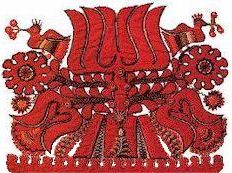|
Brief information |
|
| Reviews |
|
| Photos | |
|
Section of Public Health, Demography,
Ecology
Therefore it is vital for the indigenous population to have an influence over the use of natural resources in their living space. A point was made during the discussion that for a family to exist and effectively pass the Finno-Ugric heritage to its younger generation, protection of family and a corresponding family policy are essential. The range of discussed problems also revealed that the shared heritage common to Finno-Ugric peoples it not limited to linguistic relationship only but, in the post-communist period, most Finno-Ugric peoples face the same problems. The importance of co-operation was stressed by almost all speakers.
It was noted that to co-ordinately study environmental, health, social and demographic
problems there is a need for co-operation between scientists, institutes of
higher education, public institutions and non-governmental organisations. Ministries
responsible for these spheres must also co-operate in finding solutions by rendering
information and data exchange and by establishing databanks. Those peoples who
have had advanced structures to start with might now support others who are
busily building them. These structures include statistical offices and research
institutions in demography, ecology and economy, as well as agencies for protection
of family, children and youth and for rendering public health service. In particular,
the exchange of scientific information should be improved in the spheres of
health service and demography. In the area of public health, it is not enough
to operate with average figures; instead, the data must be provided on separate
nationalities, indigenous populations and ethnic minorities. As an example it
was pointed at the corresponding UN Economic Commission programme: this should
be extended on Finno-Ugric peoples of the Russian Federation. Experts in Finland,
Estonia and Hungary have already obtained their results under this programme. The Section makes a suggestion to bring the methodology in agreement and to adopt the relevant proposals and recommendations introduced by the European Union and international organisations. The Section finds it important that the population census to be carried out in the Russian Federation in the end of the millennium complies with European practices and meets the expectations in regard to minorities1. As a methodological solution we propose that Finno-Ugric peoples be counted in population censuses in all parts and corners of the world where they are settled. We propose the Consultative Committee to find an organisational form to accomplish this, thus assisting the various partners engaged in this work. Scientific co-operation among Finno-Ugric peoples in the relevant spheres must be extended to the international scale as well, including the activities of relevant agencies and institutions of the United Nations and the European Union. It is essential to have development and funding programmes specifically intended for Finno-Ugric co-operation. We propose that Finno-Ugric peoples assist each other in gaining access to the relevant development and funding programmes, domestic as well as international. The three independent states with Finno-Ugric languages speaking populations are already actors in the international co-operation in many aspects. We hope that the Finno-Ugric peoples would take all this into account and would spare their attention to the issues outlined herein when acting on the international arena. Béla Bene Source: 2nd World Congress of Finno-Ugric Peoples. |
